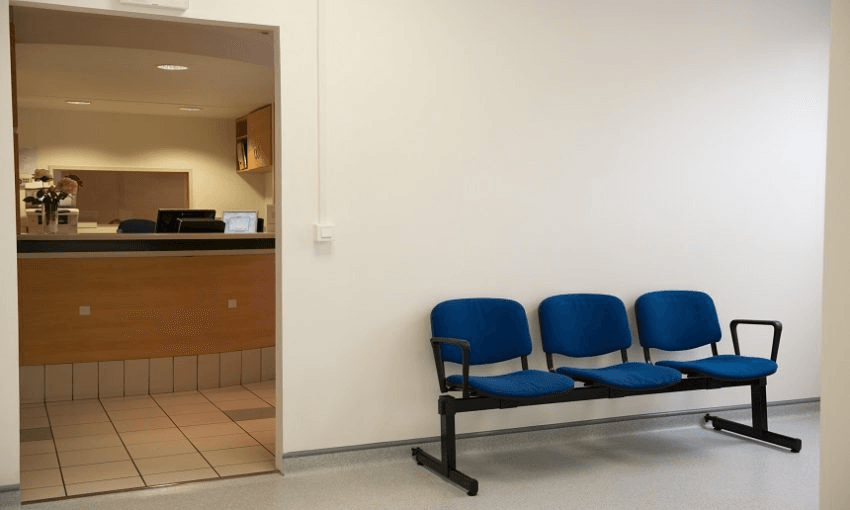They call themselves conscientious objectors, but doctors opposed to abortion are causing significant harm to patients, according to a new study. Alex Casey reports on a call for a crackdown.
Patients seeking abortion care in New Zealand are experiencing significant delays, financial cost and feelings of stigma and embarrassment as a result of the broad rights of doctors to conscientiously object, an article published today in the New Zealand Medical Journal has found.
As a result of this harm caused to patients, experts are now calling on the government to consider restricting the rights of doctors who object to abortion. Currently, doctors who object to abortion are not required to organise referrals for their patients, either directly (to an abortion provider) or indirectly (to a colleague who is able to do the referral).
“We have comparatively restrictive abortion laws and we have really generous provisions for conscientious objectors,” says University of Otago bioethics lecturer Angela Ballantyne, who co-authored the article. “We’ve got the current balance wrong.”
Abortion legislation in New Zealand has remained largely unchanged since 1977, where it is considered legal if two doctors agree that the pregnancy would endanger to a woman’s mental or physical health. There is currently a draft bill in front of cabinet to remove it from the Crimes Act.
“We need to reflect on the fact that abortion has become a really core health service,” says Ballantyne. “One in four women have had an abortion, one in five pregnancies end in abortion, so I think now the legal framework is off-balance and outdated.”
“We’re not arguing that there is no room for conscientious objection in New Zealand, but we are saying that balance is too far in favour of doctors rights, and that has potential harm for women trying to access abortion services in New Zealand.”
As outlined in the article, that harm includes delays in access to care, financial costs, as well as feeling stigmatised and a general loss of trust in the system. “Especially if you live in a rural area, there will be more of a delay,” says Ballantyne.
“Women might have to take time off work, they might have to put kids in childcare, and then are still left to find another doctor.” Research suggests that delays impact on rural women and women in minority groups the most.
Misinformation surrounding the abortion process is a big problem, and one that can be exacerbated when objecting doctors aren’t required to provide any further information to their patients.
“I’ve spoken to teenagers who think you can’t get an abortion after 14 weeks, or were told that you need a pre-existing mental health condition, so didn’t even bother trying,” says Ballantyne. “The fact that doctors can just say ‘oh no, I don’t do that’ leaves a lot of women floating around in a confusing system by themselves.”
Ballantyne has observed a large discrepancy between how conscientious objectors and their patients perceive the current process. “People who conscientiously object say that it is a respectful conversation and it doesn’t delay services. But then there are stories from women who have been through the same process and felt judged, stigmatised and abandoned when providers won’t do the referrals.”
In her work with abortion providers, she has heard anecdotal reports of doctors who won’t just object, but convince the patient to change their minds. Doctors are not currently obliged to declare their objection, although many practices have it listed on their website.
“Part of the difficulty is that we don’t know how many conscientious objectors there are, and we don’t know how the practice plays out because it all happens behind closed doors,” says Ballantyne.
Within the current law, the consult is free for the pregnant patient, but doctors who object to abortion are still entitled to claim the consultation fee from the government.
As the momentum around abortion law reform gathers speed, Ballantyne says the government should use this opportunity to reflect on what they expect of conscientious objectors when it comes to abortion referral, and should consider restricting their rights relative to where they currently stand.
“We live in a pluralistic society, but the law needs to provide a better framework that balances the interests of patients who want to access abortion and doctors who want to conscientiously object.”
Outside of parliament, one of the most useful things that Ballantyne has observed in the abortion conversation is being open about the topic.
“The thing that helps raise awareness is women in New Zealand actually talking about their abortion. One in four women have had one – more than have had an IUD. It’s actually a reasonably significant part of our reproductive lives, but we just don’t talk about it. Encouraging people to share those stories really destigmatises it.”
